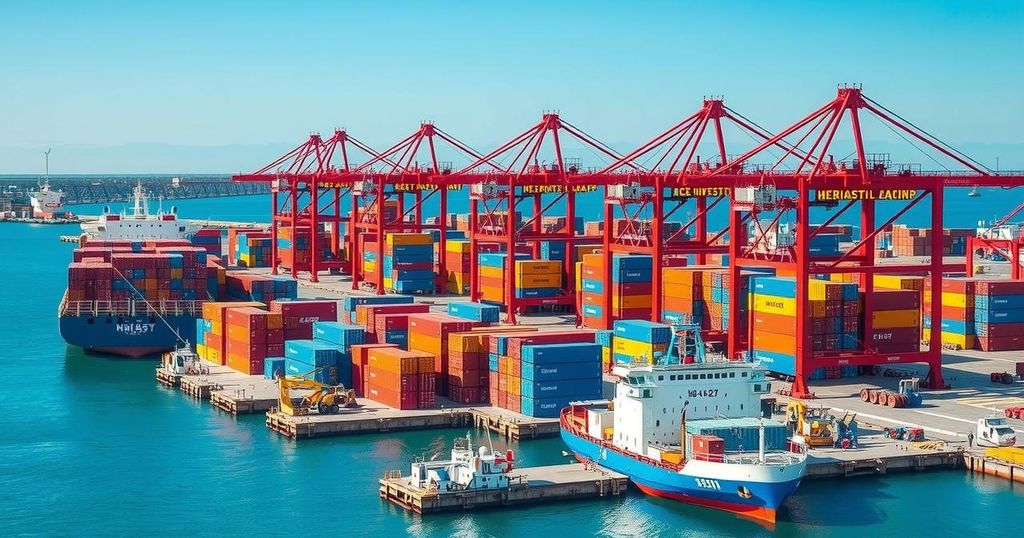A US$22.8 billion agreement enables BlackRock and MSC to acquire a majority stake in Panama Ports Co., controlling key ports while excluding interests in China. Amidst President Trump’s intention to reclaim control over the Panama Canal, political implications and strategic negotiations may arise, reflecting broader geopolitical interests.
A recent agreement valued at US$22.8 billion includes a consortium of BlackRock’s Global Infrastructure Partners and Mediterranean Shipping Company (MSC), acquiring a 90% stake in Panama Ports Company owned by CK Hutchison Holdings. This acquisition encompasses the ports of Balboa and Cristobal in Panama, and allows the consortium to gain control over CK Hutchison’s effective interests in numerous subsidiaries responsible for 43 ports in 23 countries. However, the transaction excludes any stakes in the HPH Trust, which serves ports in China.
The deal requires approval from the Panamanian government, signaling a major shift in control of significant port operations. Frank Sixt, co-managing director of CK Hutchison, remarked that the transaction emerged from a competitive bidding process and is expected to yield over US$19 billion in cash proceeds to the group. The acquisition comes amid President Donald Trump’s renewed focus on the Panama Canal, where he has indicated intentions to regain control initially relinquished in 1999.
During his presidency, Trump criticized China’s involvement in the Panama Canal, referring to it as part of a broader strategy to reclaim American interests. He asserted his administration had already begun reclaiming control during his first congressional address. Yiannis Parganas, an intermodal research head, suggested that the recent deal might provide Trump with leverage in negotiations regarding the canal, as the administration continues to scrutinize Chinese investments.
Analysts at BRS Shipbrokers highlighted that this deal could set the stage for new agreements regarding toll structures that may favor U.S. commerce, thus potentially easing political tensions. However, the intricacies of reclaiming the Panama Canal hinder straightforward acquisition efforts, as it was formally transferred to Panama per a treaty established in 1977 which does not provide a means for the United States to reclaim control.
Furthermore, maritime expert Lars Jensen pointed out that the divestment of Hutchison’s overseas ports might serve to mitigate the influence of China’s Belt and Road Initiative, implying deeper political ramifications behind the deal as the geopolitical landscape continues to shift.
The recent US$22.8 billion deal for control of Panama’s port operations underscores a significant shift in maritime logistics, driven by political motivations and the potential implications of U.S. foreign policy under President Trump. However, complexities surrounding the Panama Canal’s control highlight the challenges associated with reclaiming assets relinquished decades ago. This transaction may reflect strategic moves to counter Chinese investment efforts and reshape international trade agreements, while also serving as a barometer for evolving U.S.-Panama relations.
Original Source: www.rivieramm.com






